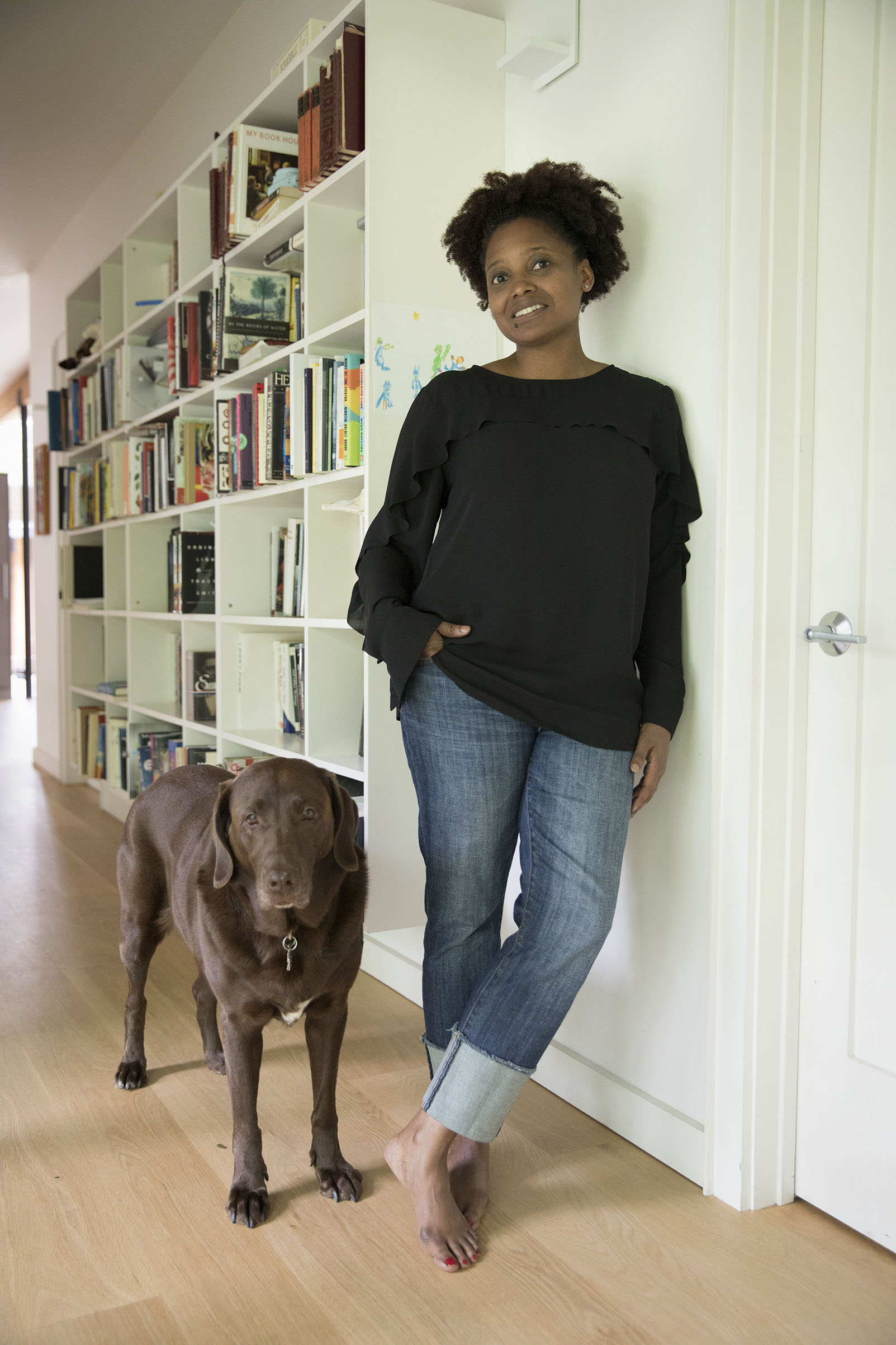
Why does poetry matter today?
Poetry requires us to be humble and beholden to something other than our own opinion. That’s important. There’s too much in our 21st century lives that is telling us we’re the most important thing, that our initial gut reaction is incredibly valuable and not vulnerable, and that our opinions as consumers are more important than just about anything else about us. A poem says, “No, no. You have feelings. You have fears. You have questions. Let’s get back to the voice and the vocabulary of being human.”
What do you feel is your duty as poet laureate?
I think my duty is to say, This is something everyone has permission to do. A poem is not something you need an advanced degree to comprehend.
What’s the most interesting thing you’ve gotten to do so far as poet laureate?
I visited Cannon Air Force Base near Clovis, N.M. That was special because my father was in the Air Force. But it was also exciting to kind of see how this particular vocabulary landed in a place where people are living by a different set of terms. People were willing to dive in and say, “This poem reminds me of being an adolescent” or “This poem reminds me of something I experienced when I was overseas.”
What has surprised you most in your travels?
Sometimes I feel like when you are listening to a poem together with someone else, there’s a sense of energy, or a spirit that the poem catches you up in. I was talking with a group of students at the Santa Fe Indian School about that, and they said, “We believe that happens with language that isn’t only poetry. We believe that happens with prayer ceremony.” And so I thought, Wow, this is another vocabulary for thinking about what I do–ceremony, a living tradition.
Has there been a particular poet laureate whose tenure you wanted to use as a model?
Rita Dove gave a lot of public readings in Washington, D.C., and brought a broad public in. I loved that idea. I also loved Robert Pinsky’s Favorite Poem Project. Even people who say, “Oh, I don’t know much about poetry,” they do have a poem that they carry.
Is there a particular poem that you carry?
I have a lot of them. I’ve written about an Emily Dickinson poem that spoke to me when I was a child: “I’m Nobody! Who are you?/Are you–Nobody–too?” The first poem I memorized was George Herbert’s “Love (III).” It’s a poem about feeling unworthy, and Love saying, no, no, I will serve you.
Some of the poems in your new book, Wade in the Water, are about the Civil War. Why write about that now?
I think that our questions about race, and the struggle that we seem to be engaged in to truly accept, and not just tolerate but value each other, is something that goes all the way back to that time.
Why write poems that respond to politics?
I don’t think that as a person, it’s enough to have an opinion that you’re proud of, the kind of thing that you would trot out at a dinner party with close friends. I know we all have those things, but I think we have to pressure ourselves to get beyond that. Art is a good way of doing that, because it’s not satisfied with an easy, one-sided answer; it seeks out complications and contradictions.
What’s next for you?
I’m co-translating a contemporary Chinese poet called Yi Lei. And I’m working on a libretto for an opera with Greg Spears, about land held by descendants of people who were enslaved on that land, and what happens when that land becomes extremely valuable.
More Must-Reads from TIME
- L.A. Fires Show Reality of 1.5°C of Warming
- Behind the Scenes of The White Lotus Season Three
- How Trump 2.0 Is Already Sowing Confusion
- Bad Bunny On Heartbreak and New Album
- How to Get Better at Doing Things Alone
- We’re Lucky to Have Been Alive in the Age of David Lynch
- The Motivational Trick That Makes You Exercise Harder
- Column: All Those Presidential Pardons Give Mercy a Bad Name
Contact us at [email protected]